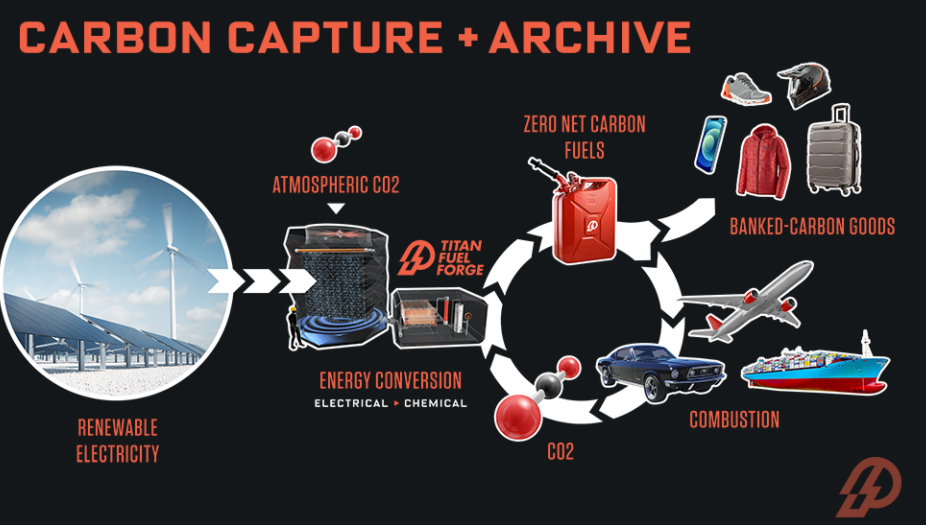Revolution.Aero Uplift: The future of transportation is in the air

exc-6179240034e1607622ed350b
It’s like magic. The process of pulling things out of thin air – that’s straight out of the magician’s playbook. Except with the meticulous science of electrochemistry, it’s far more precise than sleight of hand (no offense to magic enthusiasts)!
Energy start-up company Prometheus Fuels – valued at $1.5bn – is proposing an electrochemical process to produce fuels such as jet A1, hydrogen and diesel from the air. It is guilt-free power for the transportation sector.
Reverse combustion separates alcohols from water in its trademark Titan Fuel Forge – an electrochemical stack – to give out fuel and oxygen and clean the air around the forge. Through a four-part process, the molecules are captured, sorted and combined with electricity from solar and wind energy to produce zero net carbon fuels.
Rob McGinnis, founder and CEO of Prometheus tells Revolution.Aero: “So, we capture CO2 and water from the air, and then we bring that into electrochemical stack, which looks a lot like a hydrogen electrolyser, and then you have an anode and a cathode. And these repeat and we put electricity from solar wind into that stack. And so that electrical energy becomes the chemical energy of the fuel.”
McGinnis says the fuels produced by Prometheus are exactly the same – in terms of their chemistry – as ones sourced from the ground. In fact, the aim is to produce “a better jet fuel than fossil can produce”.
But unlike fossil-based fuels, these electrofuels will have a zero net addition of CO2 in the atmosphere, adds McGinnis.
Prometheus has already announced partnerships with or backing from American Airlines, BMW’s i Ventures, JetPack Aviation and shipping giant Maersk. American has agreed to buy 10m gallons of jet fuel for its fleet.
Timelines and plan of action
Prometheus will aim to start building the first Titan Fuel Forges and running emissions tests next year. It will then aim to sell gasoline and jet fuel, pending approvals from authorities. Diesel and marine diesel will be next. “After that, we’re going to go produce and scale them all,” says McGinnis.
“We’re probably going to build 5m gallons of capacity next year. And then quintuple that the following year. And at that point we want to have enough pre-orders for fuel and fuel forges to put together finance to build a big factory called a metaforge,” says McGinnis.
By 2025, he hopes they can start replacing large chunks of fossil fuel usage.
Some of the biggest advantages of electrofuels are cleaner burning and the fact that people can use the fuels in existing machines, similar to sustainable aviation fuel (SAF). McGinnis also said products of the Prometheus method will be cheaper. “Our jet fuel is one cent less per gallon than fossil jet,” he says.
“We can fuel a Dreamliner and essentially turn it into zero carbon transport as soon as you switch the fuel and also dramatically reduce contrails and particulate emissions.”
Some issues McGinnis can foresee are around supply of the electrofuels. As a result, the big airports – such as in Los Angeles and San Francisco – and big carriers – such as American – will be supplied to first.
It aims to start producing and distributing in the southwest of the US. Next, Prometheus will target to set up in parts of the world where there are large amounts of sunshine such as Europe, North Africa or the Middle East.
Eventually the plan is to produce the forges and have other companies operate them, says McGinnis. And other people could probably put these onto their own renewable resources to make hydrogen and jet fuel for themselves or others.
“People who are, for example, good at suppressing, transporting and distributing hydrogen would be great partners for us.”
The company also foresees applications in the eVTOL space, on vehicles which will fly using hydrogen.
Founder and CEO of JetPack Aviation, David Mayman tells Revolution.Aero: “If they can bring this to scale, it’s awesome. They’ve raised a substantial amount of money. We’ve contracted to take a certain number of gallons of their jet A1 fuel next year and increasing over the next three years from there. The quality and compliance with existing machines fit perfectly for us.”








